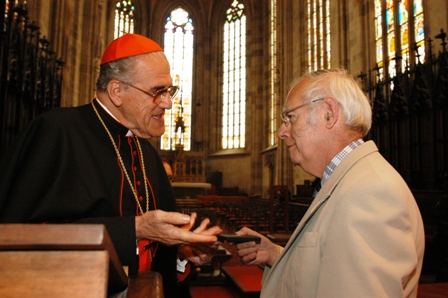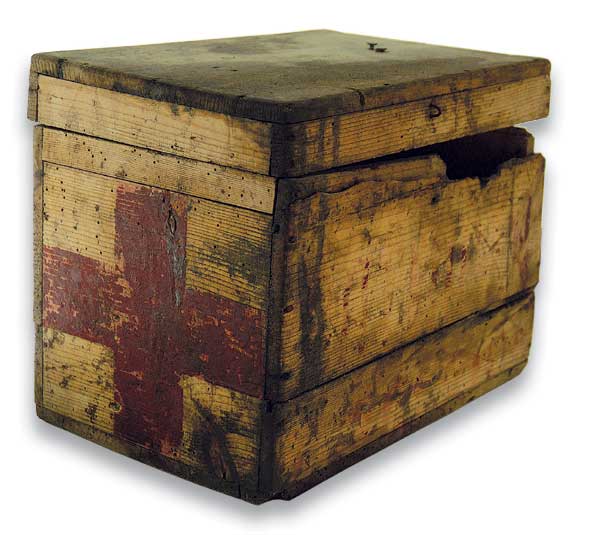How May Doctors Get It Wrong?
A speculation
Ian Jessiman
Why do doctors get things wrong in everyday practice and why are their responses sometimes inappropriate, even disastrous, in a crisis? What follows are a few thoughts which have arisen from five years involvement with the Professional Conduct Committee of the General Medical Council.
There are two aspects to this question. Firstly, is there any evidence of particular personality traits among doctors? Secondly, does psychology help explain reactions in an emergency or crisis situation? In the first part of this paper the underlined words are taken from current psychological parlance.
With so many different branches and specialities in the profession, it seems unlikely that all doctors would have similar behavioural characteristics or personalities. It may be that those who come before the GMC are there because they share particular traits; indeed, some patterns do seem to be recurrent.
It is natural to defend one’s position if challenged. This, in itself, may not always be the wisest response. But those arraigned before the PCC have often chosen to pursue such a course to inappropriate lengths. To respond to complaints or criticism with a bombastic response, rubbishing the complainant, denying even the remotest possibility of error, or even irrationally denying that an error was anything of the sort, is inappropriate and may be disastrous. How is it that such behaviour comes about?
Our position in society and the decisiveness expected of us might suggest that many doctors would be of an authoritarian personality. Psychologists categorise such people as rigid, inflexible, needing their environment to be highly predictable, reluctant to accept technical innovation and hostile to ‘inferiors .
Medical selection, largely by academic ability, will tend to favour those with a strong drive to achievement. Such a drive may be essential to success, but must never override simple etiquette or personal and scientific honesty. Behaviour may also be affected by fear of failure, the obverse of the drive to achievement.
Authoritarians and those with a strong drive to achievement may respond to any threat to their position/dominance with domineering or bullying behaviour. A head whose department is under threat or whose results are being criticised may ‘take it out’ on his juniors or angrily assert (‘pontification’) that what he is doing is unchallengeably right.
Decision taking is influenced by psychological factors, as is the ability to sustain or change decisions. Those with the tendencies already mentioned may have particular difficulties. According to Festinger’s theory of dissonance, a decision, once made, gives rise to pressures that tend to stabilise that decision. Apparently, the less justified the decision (on the facts), the harder the resolution of the dissonance. Dixon puts it this way, ‘In short, an inability to admit one has been in the wrong will be greater the more wrong one has been, and the more wrong one has been the more bizarre will be subsequent attempts to justify the unjustifiable.’2
A similar trait may be revealed in a refusal or inability to change one’s mind, when a mistaken diagnosis or course of treatment is maintained in the face of (or indeed perhaps because of) concern or criticism especially from ‘juniors’.
Psychological defences against changing one’s mind even include misperception of data or events. Festinger1 (p.149) notes. ‘It is of course, well known that people cognize and interpret information to fit what they already believe.’ Phenomena of this kind include ‘perceptual defence’3 (stimuli which are threatening or anxiety provoking are more difficult to perceive at a conscious level than those which are not). ‘deliberately sustained ignorance’ and ‘tunnel vision behaviour’.
Decisions of the PCC have to be based on findings of fact ‘beyond reasonable doubt’. The causative effects of behavioural traits or psychological factors in producing these facts are irrelevant to the findings, but might later be seen as grounds for mitigation. Committee members and doctors should be aware of them.
Less often the FCC has to consider the case of a doctor where things have gone badly wrong in a crisis and where attempts to remedy matters seem only to have made them worse. In such a case, most commonly in the fields of obstetrics or anaesthetics, additional factors, independent of personality traits, may affect behaviour. The stages experienced in the unfolding of such a crisis show remarkable parallels to those of bereavement, and the terms underlined in this section reflect this.
The first awareness of a crisis is that things are not quite as they should be. Early signs are unclear and confusing, and easily wrongly assessed. Paradoxically, ‘in the initial stages people behave … in exactly the same way as they behave in normal life’.4 Moreover, a doctor at a medical emergency feels called upon to behave as if everything was completely under control.
As the crisis unfolds shock, disorganisation and paralysis may occur, but the tendency is still to follow normal routine. At fires, Faith found that ‘although people could see the fire growing they didn’t react to it immediately.’ [People carry on with their ordinary conventional activities] ‘until the circumstances are so dramatic, so disturbing, so demanding that they feel they have to do something very different’.4 ‘Paralysis’ may hinder the proper response. The doctor ‘disorganised’ by a crisis may act rationally and irrationally by turns, outwardly behaving as if everything was normal.
Once the disaster has unfolded there may follow a gradual recognition of what has gone wrong, though at first accompanied by denial. The doctor may then claim, not that the disastrous course he had pursued was clearly right, but that he had actually – notwithstanding contradictory evidence from witnesses – managed the case properly along ‘textbook’ lines. If the doctor records his version of what happened immediately after the event it may be a ‘stylised’ or ‘perfected’ account. When the true facts become known one or other version must be false. He is then open to a charge of lying.
Of course an accomplished liar can always produce a convincing story. But where a statement committed to writing immediately after the event is completely at variance with the evidence of others involved, it is hard to believe that anyone with a scrap of intelligence could have invented it. Why should the doctor claim to have behaved in a way which is not merely factually untrue but patently so? I suggest it is ‘’denial’ which leads the doctor, at the rime of writing, really to believe that that is what he did. Only later and gradually comes the realisation of what actually happened and the mistakes made, but by that time what was committed to the notes in haste may look more and more like deliberate falsification.
Further realisation leads to anxiety, depression and guilt. How could it have happened? How could have acted (or failed to act) as I did? The doctor may now recognise the truth. It may then be helpful to talk things over with a colleague but unwise, at this stage, to give a new account to management.
A phase of aggression may occur. ‘It was all some one else’s fault.’ Written responses to the legal allegations, prepared by the defence societies, seem not infrequently to adopt a rather belligerent stance. This does not always stand the doctor in good stead at a hearing. Legally, it maybe the best approach but it may also reflect the doctor’s psychological defence. A doctor must always ensure that any statement is factually correct and says what he wants it to say, not something he thinks his lawyer (who may have misunderstood) is recommending that he should say. If a doctor seeks, before the PCC, to disown or contradict aspects of his initial letter of explanation, the conclusion must be that either then or now he is lying.
Those doctors who seek to be restored to the register have to show resolution and reintegration. The doctor has to persuade the Committee that s/he has accepted the serious wrongness of the behaviour of which s/he has been found guilty and firmly intends that such an incident will never happen again.
The effect of cultural or ethnic factors on conduct or response to stress does not appear to have been studied.
Discussion
Ought the selection process for doctors to involve an assessment of personality? Should we consider, particularly for the high risk specialities, only those who will be best able to cope under pressure in an acute emergency?
All doctors may, occasionally, face an acute crisis. Our ability to cope can be improved enormously by intensive training, and the increasing use of mock-ups and dummies promotes this.
For the individual doctor to be aware of his or her psychological tendencies may be valuable. A degree of humility and an awareness that one might be wrong is also important: team working may facilitate this.
If something has gone wrong and a catastrophe has occurred, the doctor must proceed with great caution. Contrary to received wisdom, I believe it may be wisest not to commit immediately to the official records a ‘definitive’ account of what happened. Recollection of the supposed facts may be warped by a disbelief that such an event could have occurred at all and an unconscious desire to explain the disaster as inevitable. The account may be so far removed from reality (as later testified by others present) as seriously to incriminate the writer. To make notes for one’s own use would be wise and could be valuable later. Paradoxically, an account written ‘after the dust has settled’ is more likely to be correct than one scribbled in the heat of the moment.
- A Theory of Cognitive Dissonance. Leon Festinger, 1957(1962) (Stanford University Press).
- On the Psychology of Military Incompetence. Norman F. Dixon, 1976 (Jonathan Cape Ltd).
- Psychology: The Science of Mind and Behaviour. Richard D Gross, 1992 (Hodder & Stoughton).
- Blaze. Nicholas Faith, 1999 (Channel 4 Books).










